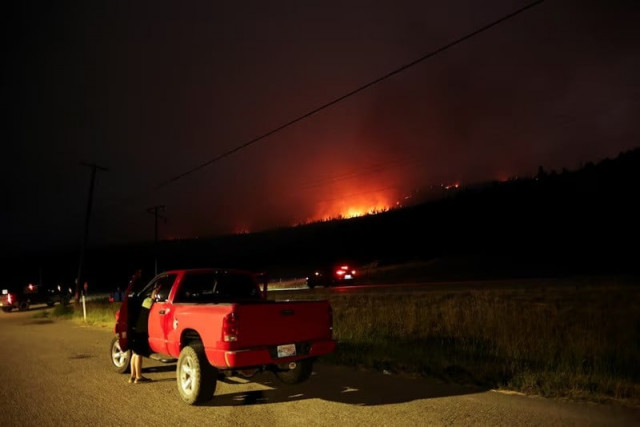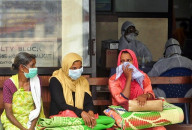Wildfires force thousands to flee in Canada as evacuation orders triggered
Wildfires in northern Alberta prompt evacuations for 5,000 residents as province battles five major blazes

Wildfires raging through the northern part of Canada's Alberta have forced evacuations of three communities, a provincial body said on Saturday, as the oil-rich province continues to fight five different 'wildfires of note' in separate areas.
A wildfire of note is often considered to be of significant threat to public safety, communities and critical infrastructure.
The evacuation orders have been issued across John D'Or, Fox Lake and Garden River communities in northern Albert, covering close to 62,000 hectares and comprising 5,000 inhabitants.
No threat to oil sands production was mentioned.
Alberta is in the grip of 158 wildfire events of which 55 are out of control, which means a fire is expected to continue growing and a perimeter has not yet been established. Not all out-of-control wildfires require the evacuation of people.
"Fire activity is expected to remain intense throughout the weekend as the hot and dry weather continues," said the Alberta government's wildfire service in a statement.
There are over 200 firefighters and support staff, 10 helicopters and 43 pieces of heavy equipment working on this complex, it said, adding the fire was caused by lightning.
Meanwhile, in neighbouring British Columbia, where up to 319 active wildfires are burning, evacuation orders have been issued on Saturday due to an uncontrolled wildfire blazing between two lakes, BC Wildfire Service said on social media platform X.
B.C. has had 58 new wildfire incidents in the last 24 hours with three 'wildfires of note' in the southern region - the Shetland Creek, Aylwin Creek and Komonko Creek.
All three are on evacuation alert, the provincial government said.
"Fire activity is increasing today in southern B.C. due to the thunderstorms across the interior and into central parts of the province," it said, adding that close to a thousand BC Wildfire Service firefighters are on the ground.
More than half of its wildfires are out of control.



















COMMENTS
Comments are moderated and generally will be posted if they are on-topic and not abusive.
For more information, please see our Comments FAQ